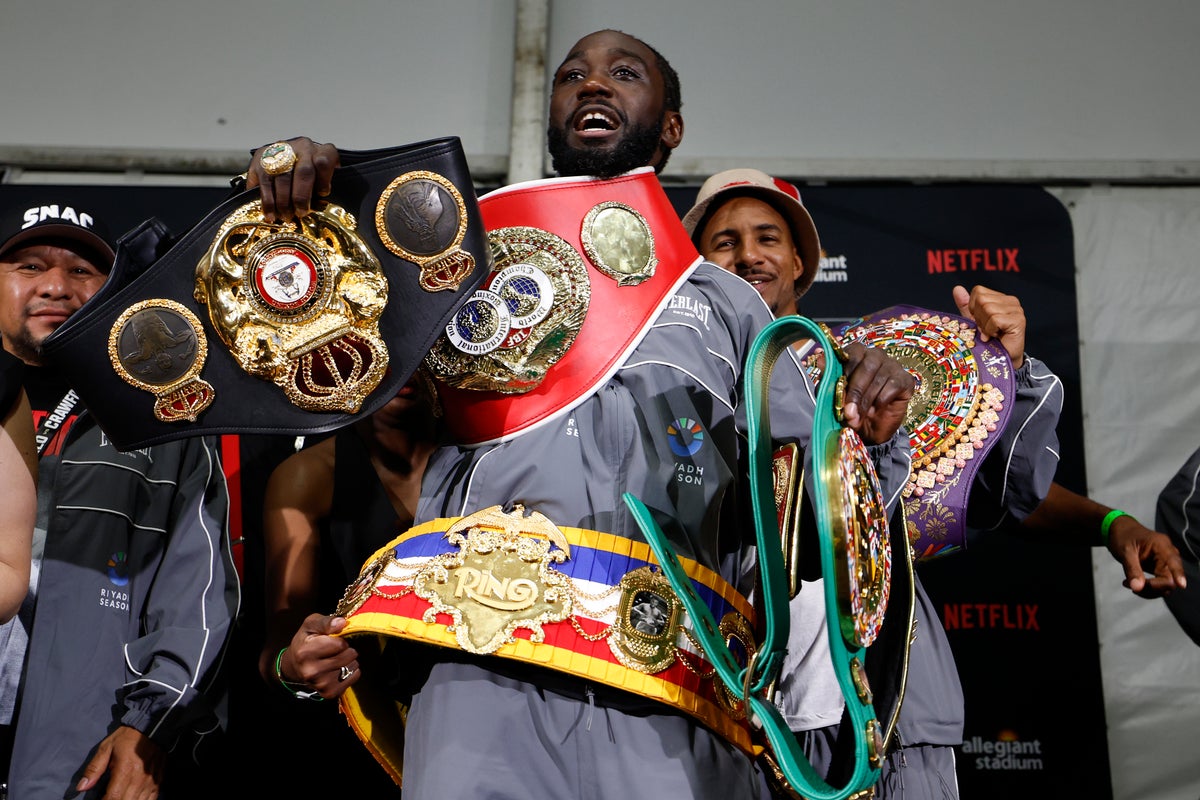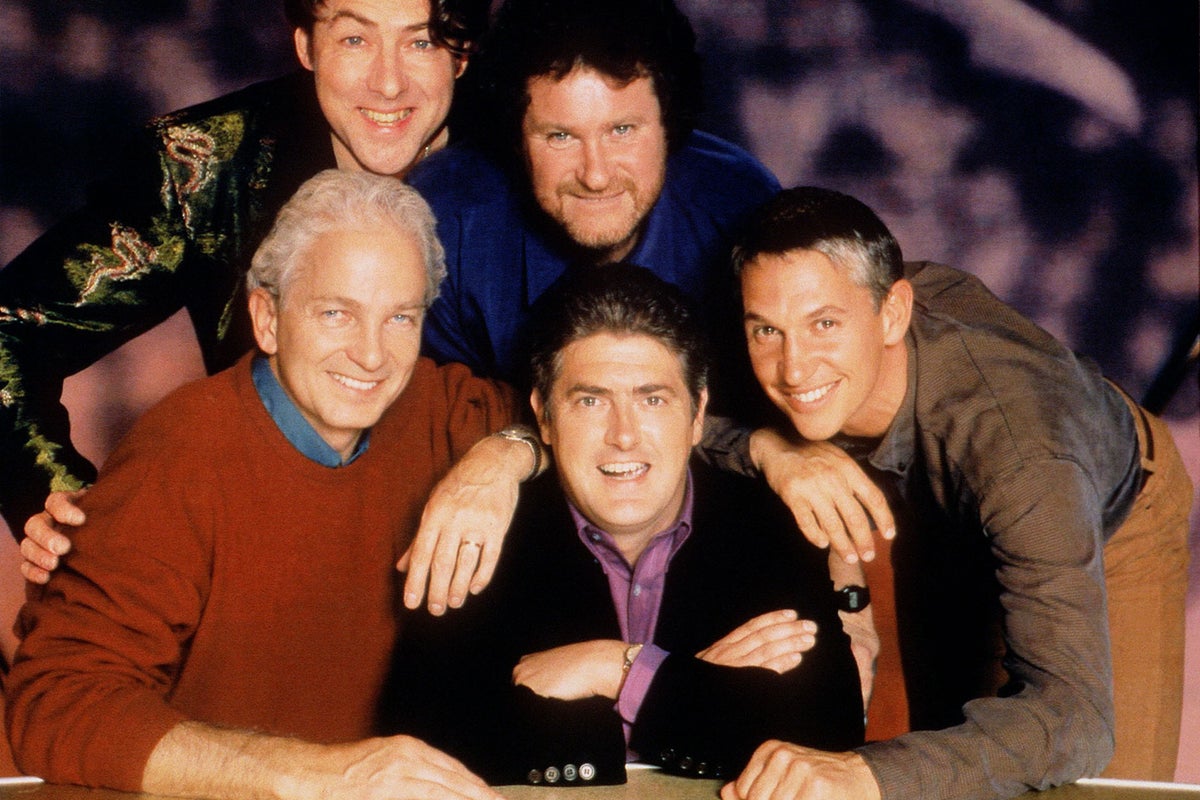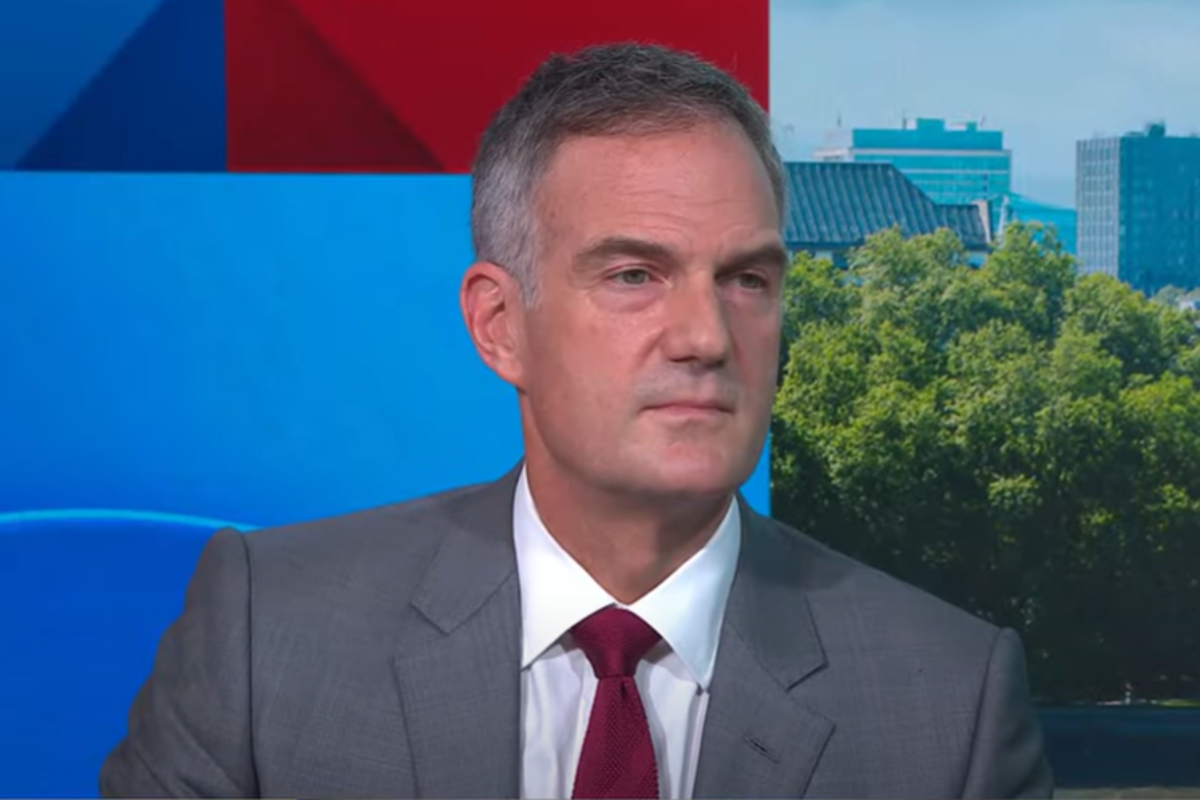Comedian Rory McGrath can remember the biggest laugh he ever heard in a TV studio. It was 30 years ago this month, on the set of a comedy sports quiz that would turn British sports broadcasting on its head. McGrath was sat next to Gary Lineker, football’s Mr Nice Guy, the “squeaky-clean, impeccable, never-been-booked God of sport”. And host Nick Hancock had just called the former England captain a “jug-eared c***”. “The audience were half-shocked and half pissing themselves,” says McGrath. “I’m pretty sure it was never aired.” Aired or not, everyone in the studio that day knew one thing – A Question of Sport this was not.
They Think It’s All Over began on 14 September 1995, at the height of Nineties Britpop/lads’ mag mania, a year after Baddiel and Skinner’s Fantasy Football League began on Sky, and a year before Euro 1996. Its mix of sports geekery and down-the-pub humour proved an instant hit, drawing in more than 5 million viewers upon its debut on BBC One, rising to 10 million before the end of the first series. The regular line-up – Hancock, Lineker and McGrath were joined each week by former England cricket captain David Gower and comedian Lee Hurst — became household names. Over 10 years, 19 series and various specials, the show would attract controversy, complaints, critical acclaim, court cases and many tabloid headlines.
Created by Bill Matthews and Simon Bullivant, the show, originally called Sporting Chance, began life on BBC Radio 5 in the early 1990s. It was hosted by Des Lynam – who Matthews credits with coming up with the new name – with McGrath and Rory Bremner as team captains. When Talkback transferred it to television, Lynam made way for Hancock, the scratchy-voiced Stoke stand-up. According to Gower, he made an instant impact: “Nick gave it an edge that we wouldn’t have had with the urbane Lynam. Suddenly the show became, shall we say, a bit more interesting. Nick very quickly got his teeth into it.”
Hancock also very quickly got his teeth into his colleagues and, aided and abetted by the show’s maverick producer Harry Thompson, inspired a tone of no-holds-barred locker-room banter, with nobody off-limits from the merciless teasing. As such, each team member quickly adopted a comic persona. Hurst was the oddball; McGrath the beery football fan; Lineker the cheeky, perma-injured goal-poacher; Gower “the champagne-drinking, Tiger Moth-flying toff”. Lineker and Gower were not celebrated as sporting heroes, but ridiculed as failures. “The rule of piss-taking,” says Gower, “whether in the pub or in a TV studio, is: if you object to it, it gets worse. So I learned quickly to just smile sweetly.” In a very Nineties fashion, the show delighted in un-PC, line-treading humour. The athlete Roger Black, who invariably came second in the 400m to the US sprinter Michael Johnson, was introduced as a man who “has chased after more American bums than anyone since Liberace”, while the frequently all-male panel would often behave like 14-year-old boys in the presence of Lycra-clad female athletes.
“Some of the jokes wouldn’t stand the test of time,” admits Matthews. “Some of them were quite sexist and disrespectful.” Not every guest was quite as willing to buy into the locker-room atmosphere, with McGrath recalling cold shoulders from Gordon Ramsay and Teddy Sheringham. Gower remembers the boxer Chris Eubank taking exception at being called “a badly dressed twat with a speech impediment”. All of which is tame compared to the real controversies. Olympian Fatima Whitbread received an apology and settled for an undisclosed figure when she took the show to court in 1999. “We joked she failed the urine test because she got her c**k stuck in the bottle,” says McGrath. “I remember we took a lot of flack for that.” It was not the vulgar joke, however, that Whitbread complained about. “What she objected to was the idea that she’d failed a drugs test at all, which she had never done in her career,” says Bullivant.
In 2020, former Manchester United star Luke Chadwick revealed that the regular jokes made by Hancock about his appearance, when the player was just 18, destroyed his mental health. While Hancock has since said sorry, still awaiting an apology is Victoria Beckham, who, with husband David, was also a regular victim, particularly for McGrath. “We called them ‘Thick and Thin’,” says McGrath, who remembers Lineker saying that David loved the show but found all the jokes about his wife a bit embarrassing. Victoria got her revenge in an interview with Heat magazine, calling McGrath an “ugly bastard” and a “prick”.
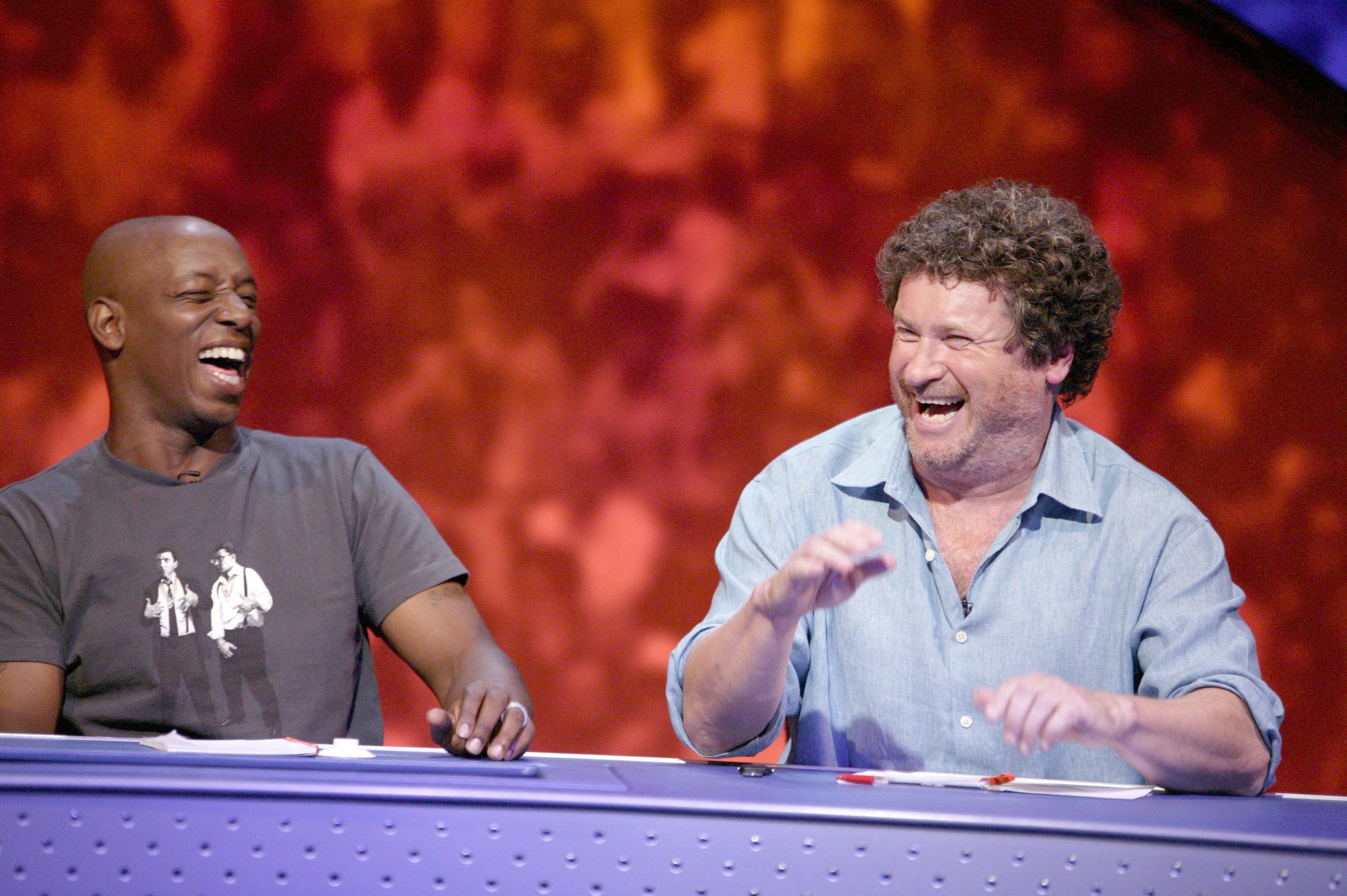
Peter Fincham, then the head of Talkback who later became controller of BBC One, remembers the tone of the show being one that everyone involved bought into. “It was the era of laddism, wasn’t it,” he says. “You wouldn’t make a show like that today. There are some things in there you definitely wouldn’t do in the modern age, like Feel the Sportsman.” Easily the show’s most notorious and popular round, Feel the Sportsman saw blindfolded team members trying to guess the identity of a sportsman or woman using touch alone, leading to copious amounts of “misunderstandings” and raucous humour. “I remember being in the studio for the very first show, when we had Giant Haystacks on,” says Bullivant. “The audience had never seen anything like it.” Matthews remembers people in the audience gasping for breath as McGrath got to grips with the enormous wrestler.
With producer Thompson at the wheel, the show continued to push the boundaries. In one game of Feel the Sportsman, the teams had to identify a zebra and a crocodile, while another saw Gower and Jonathan Ross (who replaced Hurst in 1999) tussling with two scantily clad young women in a large tub of mashed potato. In the 1997 Christmas special, which drew an audience of 12 million and had Sooty as a guest, McGrath and Lineker were required to identify two pot-bellied wrestlers – onstage, the “gut-bargers” had their enormous stomachs oiled by the glamour model Linsey Dawn McKenzie. To the delight of the audience, McGrath chose to feel McKenzie instead. “In one of the tabloids it was, ‘I was groped by Rory McGrath,’” says the comedian, “like I’d done it on the Underground at rush hour.”
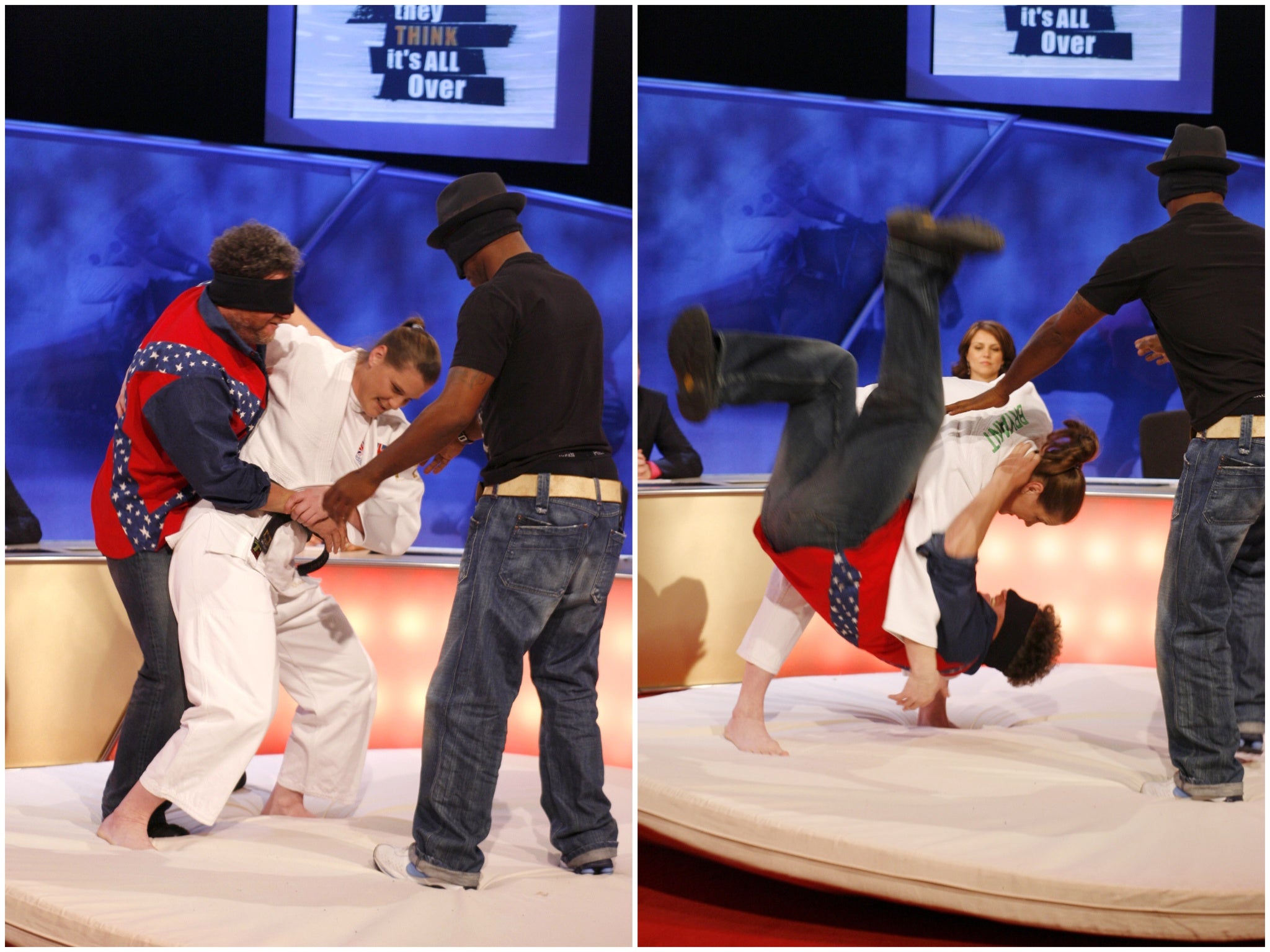
In a 2002 episode, McGrath’s hands strayed a little low while identifying the boxer Jessica Hudson, who obliged with a right hook to the side of his head. “He was feeling my bum,” said Hudson at the time, “and that was not on. I gave him a warning tap, but he took no notice, so I walloped him.” The show’s button-pressing ethos could perhaps be summed up by Thompson’s subsequent quote to the press: “Giving Rory a female guest to feel up is like letting Vanessa Feltz loose in a cake factory.” While amusing at the time, the constant teasing – which occasionally veered into cruelty – and near-the-knuckle laddishness means that the show, for all its moments of hilarity and format-defining inventiveness, has not aged as well as it might have done. “It would be interesting to look at it today and see how uncomfortable it might make you,” says Fincham. “I can think of other, more recent panel shows – such as Celebrity Juice. That only ended in 2022 and you’d probably feel quite uncomfortable watching that now. Times change so fast.”

Watch Apple TV+ free for 7 day
New subscribers only. £9.99/mo. after free trial. Plan auto-renews until cancelled.
Try for free
ADVERTISEMENT. If you sign up to this service we will earn commission. This revenue helps to fund journalism across The Independent.

Watch Apple TV+ free for 7 day
New subscribers only. £9.99/mo. after free trial. Plan auto-renews until cancelled.
Try for free
ADVERTISEMENT. If you sign up to this service we will earn commission. This revenue helps to fund journalism across The Independent.
According to Fincham, the BBC Sport department hated the show. When BBC commentator John Motson was tried out as a host, Fincham was called into a meeting with the head of sport, Jonathan Martin. “I hear Motty wants to turn himself into a personality,” said Martin, “and I am here to stop that happening.” There was controversy about Gower and Lineker too. “There was a genuine debate at the time about whether sports pundits should be allowed to take the ties and blazers off and have a good time,” says Fincham. “They Think It’s All Over settled that debate. But there were certain elements within BBC Sport that would have strangled the show at birth.”
The show was eventually cancelled in 2006, having never recovered from the departures of Gower and Lineker in 2003, and Hancock in 2004. Despite what was said at the time, Gower didn’t want to leave the show. “I’d have happily stayed on,” he says. “The thing that grated slightly was that people said, ‘We’ll say you’re exploring other projects.’ I thought, just tell them what’s happened. I’m not too proud. I’ve been sacked as England captain twice. I’m used to being sacked.” Bullivant admits they tried “all the tricks in the world” to keep the show afloat but that “TV had moved on”. Matthews hopes that, like sister show Never Mind the Buzzcocks, the programme will be revived. “Every other format seems to have been, except for this,” he says. “Simon and I have the feeling we’ve been forgotten.”
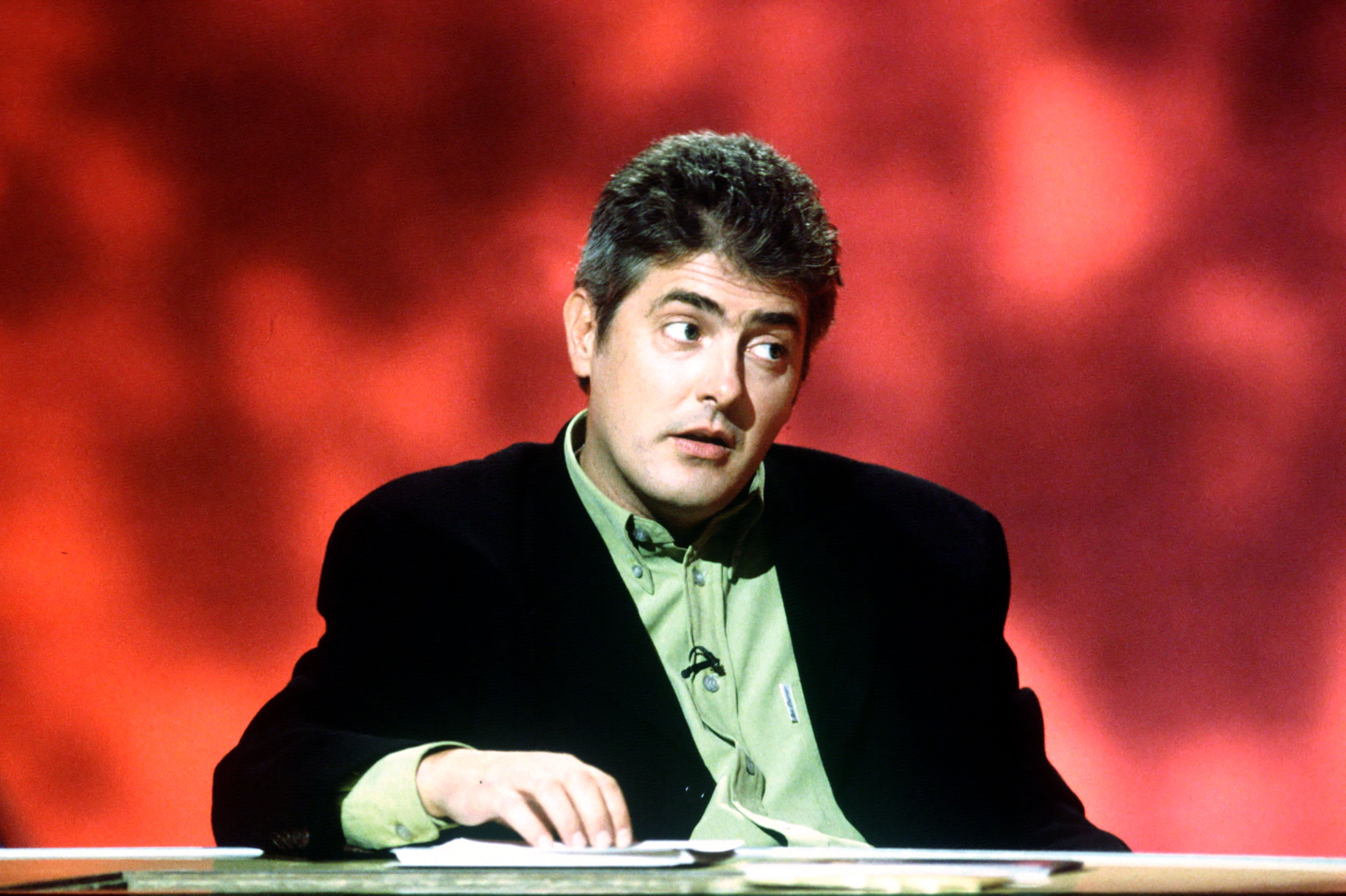
Forgotten, perhaps. Unrevivable? Possibly. Matthews and Bullivant may have to make do with They Think It’s All Over’s legacy, which paved the way for Jeremy Clarkson’s Top Gear, the proliferation of panel shows on UK TV and the banter-soaked Talksport. Certainly, those BBC Sport men of old, in their ties and blazers, would say that their worst fears came true – the show ushered in a far less reverent era of sports broadcasting.
McGrath can’t see a revival on the cards. “It’s the sort of comedy that some people think is out of date now,” he says, “but we rode that wave of being the first to do it. It’s hard to imagine today’s broadcasters having an item where two blindfolded men feel up a sportswoman.” And among all the Whitbreads, Chadwicks, Beckhams and Hudsons, does McGrath regret those moments where the show stepped over the line? “No, I was all for it. I would have crossed the line more. People say to me, ‘Oh I love They Think It’s All Over, but you wouldn’t be able to get away with that now.’ And that seems to be the thing. But at our age, you can only take that as a compliment, can’t you?”

